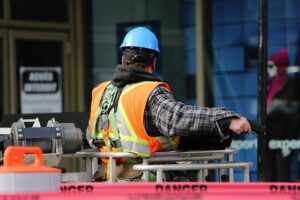The Infrastructure Investment and Jobs Act, commonly referred to as the Bipartisan Infrastructure Bill, passed last November. Now, a record number of resources are becoming available to repair roads and bridges in cities and counties across America, including Chattanooga and Hamilton County. As an investment in building a more sustainable future, the bill includes funding for public transportation options, electric vehicle (EV) charging stations and training opportunities for emerging industries.
Local leaders have allocated federal funds toward key infrastructure projects. Here are a few ways this infrastructure investment impacts Tennessee, per News Channel 9:
- $302 million to repair and rebuild roads and bridges with a focus on climate change mitigation, resilience, equity and safety for all users including cyclists and pedestrians
- $630 million to improve public transportation
- $2.5 billion in EV grants, including building a network of EV chargers to facilitate long-distance travel and provide convenient charging options
- $100 million to help connect every Tennessee resident to reliable high-speed internet
- $697 million to improve water infrastructure, delivering clean drinking water to every Tennessee resident while eliminating lead service lines and pipes
- $300 million to improve airports.
- $21 million to protect against cyber attacks
- $17 million in preparing infrastructure for the impacts of climate change and extreme weather events such as wildfires
With such an extensive undertaking, this bill also allocates funds to train and develop our workforce. The need for a well-trained workforce in specific industries including energy auditing and water management is expected to increase.
To address the uptick of workers needed to execute this infrastructure deal, many states may partner with local workforce boards or community and technical colleges for instruction. For example, bus drivers will need to be retained to operate zero-emission vehicles. Additional training may be required for a new generation of energy auditors, train engineers, architects and technicians. Specialized training may be needed for workers installing energy-efficient building technologies as well as water and wastewater utility systems. And finally, training to prepare workers for construction and other trades to build new roads, bridges, broadband, energy and digital infrastructure.
Chattanooga has invested in training its workforce, even before this bill passed. In October, local officials broke ground on a new Construction Career Center, set to open doors this April. Also in October, Volkswagen Academy opened Smart Factory Institute, the first institute of its kind in America dedicated to providing innovation and workforce training to manufacturers across the country.
The Bipartisan Infrastructure Bill provides an added opportunity for Chattanooga to become the most inclusive growth economy in the country. Chattanooga and Hamilton County may also leverage this bill to attract diverse talent, advance economic prosperity and reinforce inclusivity within the region. This is accomplished through deliberate efforts to include diverse contractors to bid on contracts or serve as subcontractors on construction projects.
At the Chattanooga Chamber, the Infrastructure Investment and Jobs Act aligns with the aspirations found in the Chattanooga Climbs strategic plan. These aspirations include increasing regional prosperity, delivering economic mobility for all, and fostering an inclusive economy through collaborative leadership.
Author Bio:
Lorne B. Steedley, vice president, diversity and inclusive growth, Chattanooga Area Chamber of Commerce, is an equity leader with a long-standing history of community building, philanthropy and civic participation. Steedley joined the Chattanooga Chamber leadership team in 2020.









